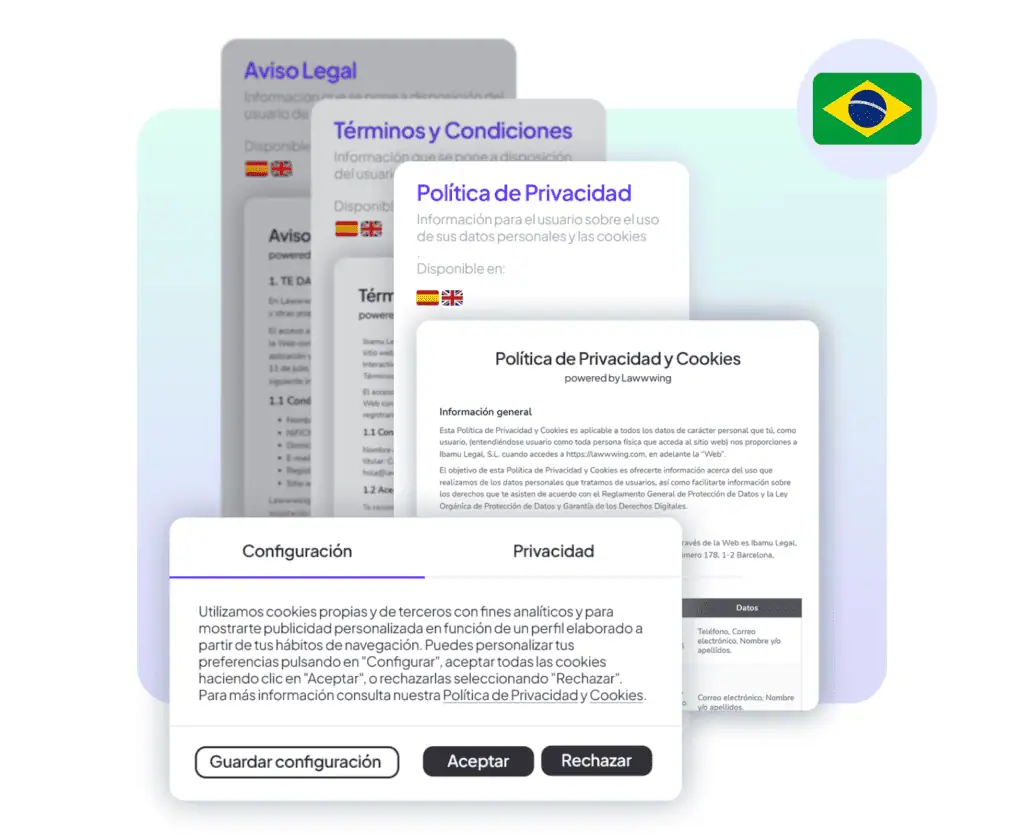

With the growth of e-commerce, Brazil has established a clear legal framework to protect consumers and personal data. Here we explain the essentials to keep your website always up to date and ensure data protection and meet the legal requirements for websites.
Brazil has become one of the most powerful digital markets in the world. This growth has been accompanied by increasingly strict regulations to protect users and promote a safe and transparent online environment.
If you run an online store, app, or platform operating in Brazil, you need to be aware of three major regulatory areas:

Law No. 12.965/2014, known as the Marco Civil da Internet, establishes the legal framework for the use of the internet in Brazil. Its pillars are:
For digital businesses, this means:
The Marco Civil serves as the foundation for more specific laws, such as the LGPD, and reinforces the fundamental rights of users in the online environment.
The Lei Geral de Proteção de Dados (Law No. 13.709/2018) is Brazil’s equivalent to the European GDPR. It regulates how personal data is collected, processed, stored, and shared in Brazil.
If you handle data from Brazilian users, even from outside Brazil, you must comply with the LGPD. Key points include:
Penalties can reach up to 2% of the company’s annual revenue, capped at 50 million reais per violation.
Law No. 8.078/1990 regulates consumer rights, including in the online environment. Its principles aim to protect buyers from abusive or unclear practices.
If you sell online in Brazil, you must:
The authority responsible for overseeing compliance with this code is Procon, which can impose sanctions even preventively.
At Lawwwing, as a legaltech platform, we provide legal technology tailored to Brazilian regulations. Our platform automatically generates the legal texts your website needs, including:
In addition:
Don’t put your ecommerce at risk: stay compliant from the very first click with Lawwwing and offer your users a secure, transparent website ready to grow.